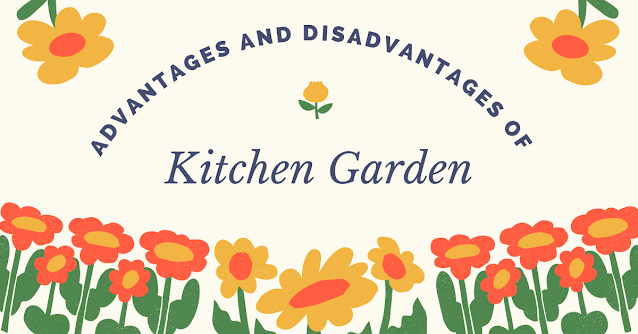Kitchen gardens, also known as vegetable gardens or backyard gardens, are becoming increasingly popular. They are small plots of land that are used to grow fruits, vegetables, herbs, and spices.
Kitchen gardens have been around for centuries, but have recently gained renewed interest due to the many benefits they offer. In this article, we will explore the advantages of having a kitchen garden and how it can improve your life.
What is a Kitchen Garden?
A kitchen garden is a small garden usually located in the backyard or in a pot that is used to grow fruits, vegetables, herbs, and spices. It is a sustainable way to produce fresh, healthy produce that is free from harmful pesticides and chemicals.
Kitchen gardens can be started in a small space with minimal effort and can provide a variety of benefits for the gardener.
Advantages of Kitchen Garden
1. Access to Fresh, Nutritious Produce
One of the primary advantages of a kitchen garden is the access to fresh, nutritious produce. With a kitchen garden, you can grow your own fruits, vegetables, and herbs without the use of harmful pesticides and chemicals.
This means that you can enjoy fresh produce that is high in nutrients and free from any harmful substances.
2. Cost-Effective
Another significant advantage of a kitchen garden is that it is cost-effective. By growing your own produce, you can save money on groceries and reduce your food bill.
This can be especially beneficial for families on a tight budget or for those who want to eat healthy while saving money.
3. Environmentally Friendly
Kitchen gardens are also environmentally friendly. They promote sustainable living by reducing food waste, carbon emissions, and the use of harmful chemicals. By growing your own produce, you can reduce your carbon footprint and contribute to a healthier planet.
4. Enhances Taste and Flavor
Freshly harvested fruits, vegetables, and herbs from a kitchen garden have superior taste and flavor compared to store-bought produce. This is because the produce is harvested at the peak of freshness and does not have to travel long distances to reach the consumer.
The flavor and taste of homegrown produce can enhance the overall dining experience and make meals more enjoyable.
5. Physical and Mental Health Benefits
Kitchen gardening has numerous physical and mental health benefits. It is a form of exercise that can help you stay active and healthy. Gardening has also been shown to reduce stress, anxiety, and depression, and promote mental well-being.
6. Educational Opportunity
A kitchen garden provides an excellent educational opportunity for children and adults alike. It can teach valuable lessons about sustainable living, healthy eating, and environmental awareness.
Gardening can also be a fun and educational family activity that promotes teamwork, communication, and problem-solving skills.
Disadvantages of Kitchen Garden
While kitchen gardens offer numerous advantages, there are also some potential disadvantages to consider. In this section, we will explore some of the downsides of having a kitchen garden.
Time and Effort
A kitchen garden requires time and effort to maintain. Gardening involves a lot of physical labor, including digging, weeding, planting, and harvesting. If you don't have the time or energy to devote to your garden, it may not be worth the effort.
Limited Space
Kitchen gardens are typically small in size, which means that you may be limited in the types and quantities of plants you can grow. This can be a disadvantage if you want to grow a wide variety of fruits, vegetables, and herbs.
Climate and Weather
The success of a kitchen garden is largely dependent on climate and weather conditions. Extreme temperatures, drought, flooding, and other weather-related issues can impact the health and growth of your plants.
If you live in an area with unpredictable weather patterns, it may be difficult to maintain a successful kitchen garden.
Pest and Disease Control
One of the biggest challenges of kitchen gardening is pest and disease control. Pests such as aphids, slugs, and snails can damage or destroy your plants, while diseases such as powdery mildew and blight can cause them to wither and die.
Controlling pests and diseases can be time-consuming and require the use of pesticides or other chemicals, which can be harmful to the environment.
Initial Investment
Starting a kitchen garden requires an initial investment in materials such as soil, seeds, tools, and fertilizers. This can be a disadvantage if you are on a tight budget or if you are not sure if gardening is a hobby that you will enjoy.
Conclusion
A kitchen garden can be a great way to grow fresh, healthy produce and enjoy the benefits of gardening. The advantages of having a kitchen garden include access to fresh and organic fruits and vegetables, reduced grocery bills, and increased physical activity.
However, there are also some potential disadvantages, such as the time and effort required to maintain the garden, limited space, climate and weather-related challenges, pest and disease control, and an initial investment in materials.
Overall, a kitchen garden can be a rewarding and enjoyable hobby, but it is important to carefully consider the potential advantages and disadvantages before starting one.


